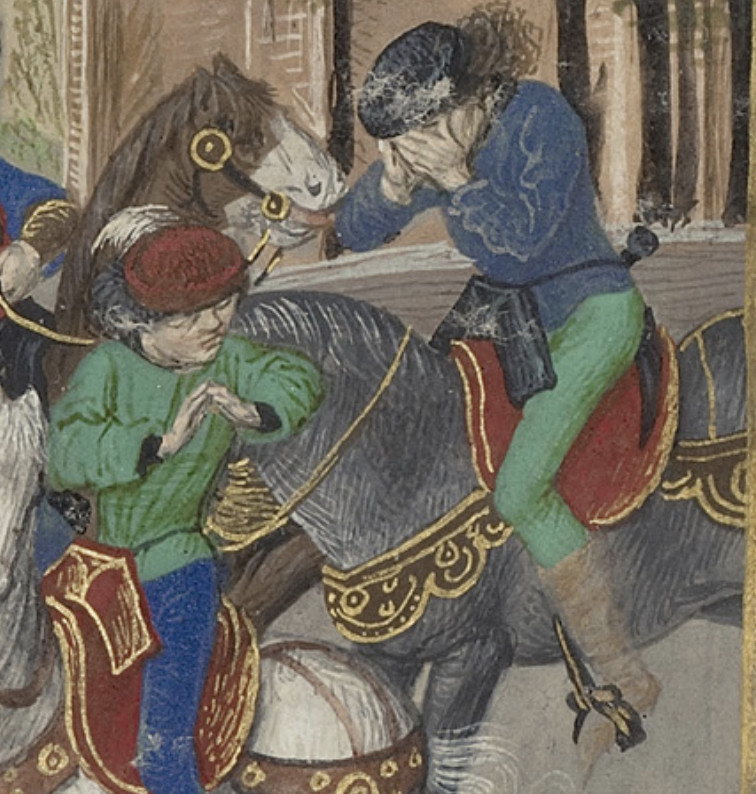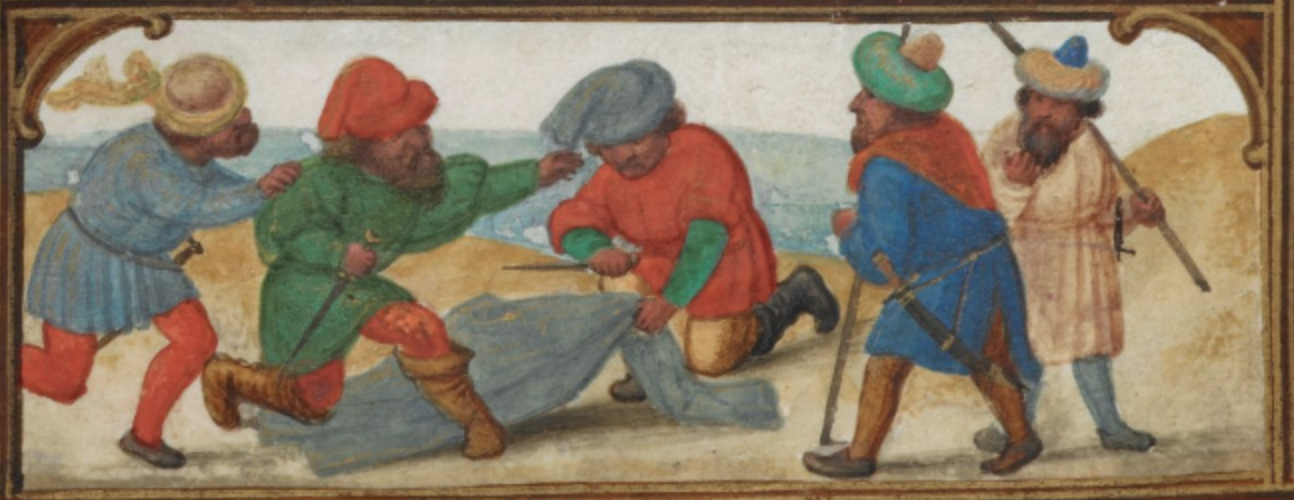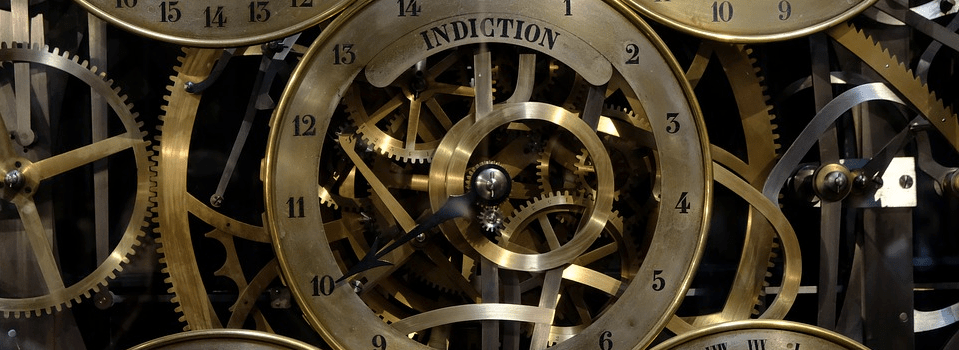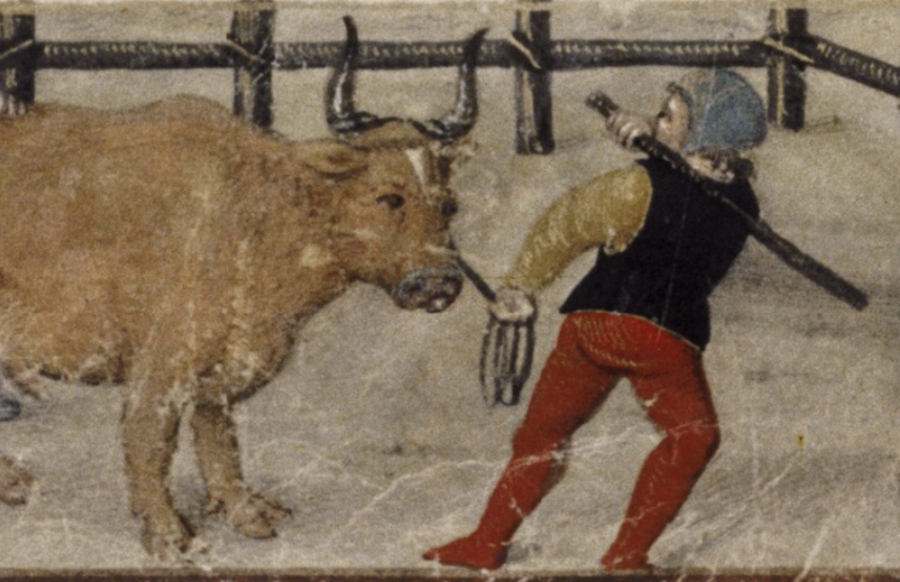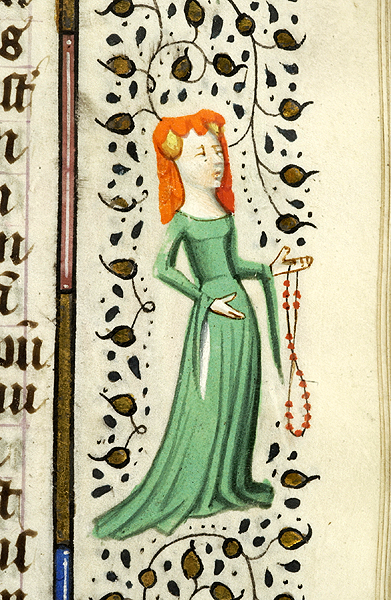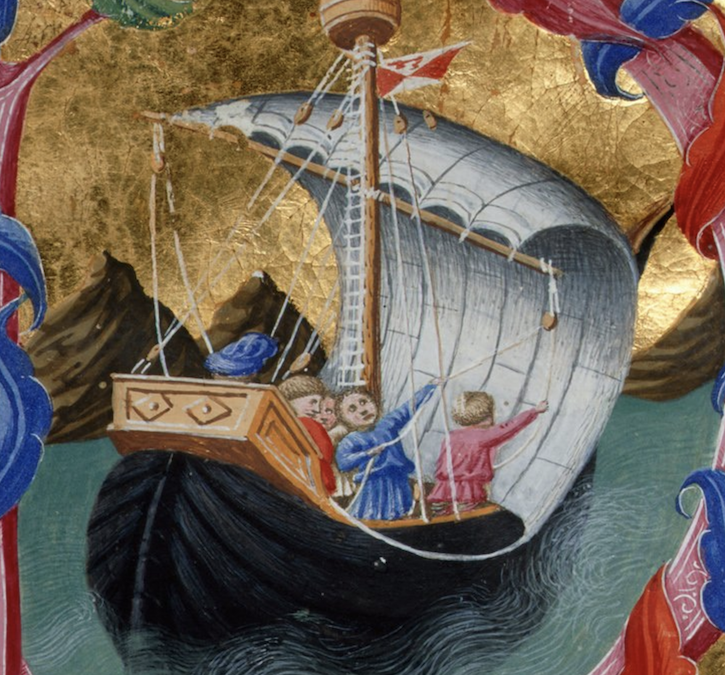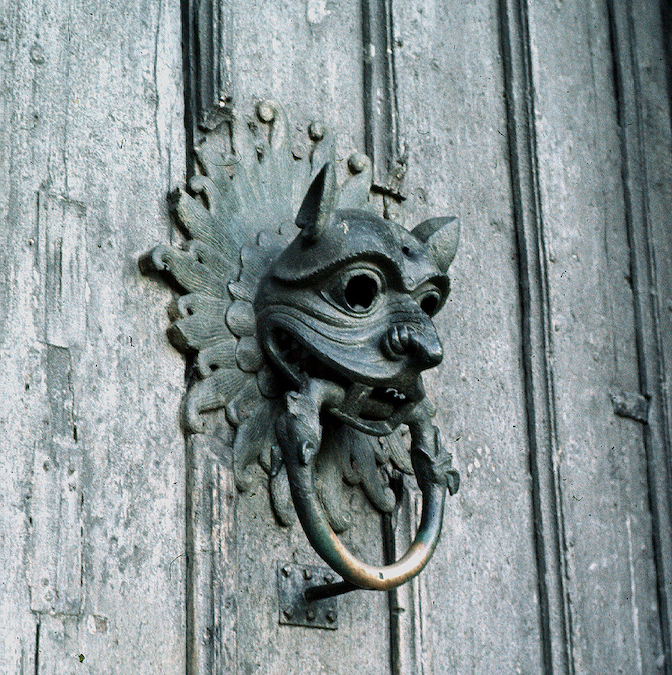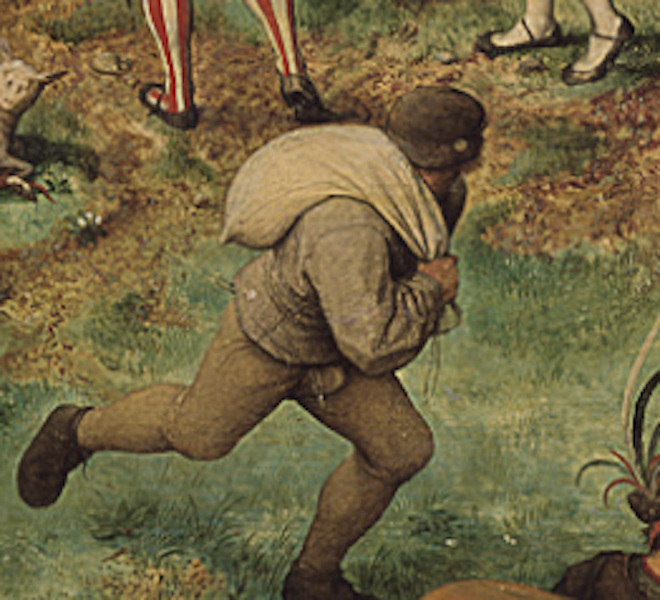Coroners’ rolls through the thirteenth and fourteenth centuries recorded many sanctuary seekers taking refuge in churches and then abjuring the realm. The coroner’s roll for Leicestershire, 1393-1413, for instance, records that John Middleton of Yorkshire fled to the church of St. John the Baptist at Dalby on the Wolds on 1 June 1400, confessing theft.Continue reading “All about abjuration”
Tag Archives: Abjuration
Abjurers who don’t leave the realm
According to a coroner’s memorandum written at Cowley, Middlesex on 8 November 1400, the villagers of Cowley had arrested one John Smyth of Colham, Middlesex, for felony and imprisoned him, but Smyth escaped and fled to the Cowley parish church. In the church Smyth confessed to the coroner that he had assaulted and killed aContinue reading “Abjurers who don’t leave the realm”
Double robbery and a hanging
Another abjurer found in the realm: in July 1406, John Sutton of Kingston-on-Thames took sanctuary in the church of St. Margaret in Merrow, Surrey. He confessed to the coroner that four days before he had robbed an unknown man on the highway between Kingston and Wandsworth, stealing five shillings; and that on the same dayContinue reading “Double robbery and a hanging”
Mysterious pardons and time machines
Although some seekers, such as John Sutton, were hanged when found in the realm after abjuration, that was not always the outcome: on 1 Dec. 1405, Alexander Copeman was pardoned by the king not only for all his felonies but also for “being in the realm without licence” after abjuration. I’m not sure what exactlyContinue reading “Mysterious pardons and time machines”
Sanctuary for cattle theft: 15th-c trends in abjuration
On 11 November 1405, Richard Spenser of Haunton, Staffordshire, fled to the parish church of Nailstone, Leicestershire. The Leicestershire coroner John Folvyll came and heard Spenser’s confession: a few days before he had stolen cattle from neighbours in Haunton. Spenser abjured the realm and Folvyll assigned him the port of Dover. We learn about thisContinue reading “Sanctuary for cattle theft: 15th-c trends in abjuration”
A stolen rosary
On 20 April 1401 William Clerk, a hosier, took sanctuary In St. Saviour’s church in Faversham, Kent. He confessed to the coroner that in December 1400 he had stolen beads (probably a rosary) worth two shillings from Agnes Thomson at Newcastle-upon-Tyne – a very long way away from Faversham! He abjured the realm through Dover.Continue reading “A stolen rosary”
Orwell, a lost port town
On 15 May 1403, the coroner was summoned to the church at Swaffham Prior, Cambridgeshire, to hear the confession of John Aleyn, labourer of Risby, Suffolk. Aleyn admitted that the week before he had killed Geoffrey Hore, another labourer. Aleyn abjured the realm and the coroner assigned him to leave through the port of Orwell,Continue reading “Orwell, a lost port town”
Seizing the ring: Claiming sanctuary at Arundel castle chapel
In 1405, the bishop of Chichester’s register tells the story of one John Moot. Moot had been arrested and taken into custody at Arundel Castle for theft and robbery, but then escaped. He ran to the chapel in Arundel Castle, where he “took hold of the ring” of the cloister gates “as a sign ofContinue reading “Seizing the ring: Claiming sanctuary at Arundel castle chapel”
Murder and robbery
In October 1407 Adam James alias Clifford fled to sanctuary in the church of St. Mary at Hill in London. He confessed to coroner John Dalton that in 1405 at Wroxham, Somerset, he had shot Nicholas Broun with an arrow, killing him. He also confessed a more recent crime, probably the one that drove hisContinue reading “Murder and robbery”
Burglary at the king’s palace
In 1406 a thief was bold enough to steal from the royal treasure itself – and as far as we know get away with it. In Easter term 1408, the Middlesex coroner John Lilleston submitted a membrane to the court of King’s Bench with seven cases from the previous year. One of these was aContinue reading “Burglary at the king’s palace”

